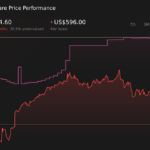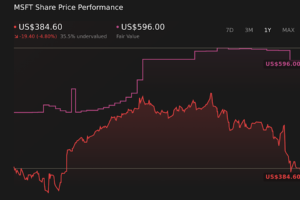CEO Jensen Huang has continuously liquidated his shares of Nvidia over the past three months.
Nvidia (NVDA -1.59%) stock has already soared 2,420% over the past five years, but Wall Street is still overwhelmingly bullish on its future. Out of the 64 analysts who cover the chipmaker, 51 rate its stock as a buy, nine rate it as overweight, and four rate it as a hold. Not a single analyst has given it a dreaded underweight or sell rating.
But over the past 12 months, Nvidia’s insiders actually sold more than 10 times as many shares as they bought. One of those major sellers was its own CEO Jensen Huang, who liquidated nearly 6 million shares from June 13 through mid-September. Should investors follow Huang’s lead, or should they tune out that noise and keep holding the stock?

Image source: Getty Images.
How many shares does Jensen Huang own?
As of Sept. 16, Huang still directly held 75.4 million shares of Nvidia. At $116 per share, that personal stake is worth $8.75 billion. However, Huang also indirectly owns another 785.6 million shares of Nvidia across five other trusts and a partnership. Those combined shares account for the lion’s share of his net worth of over $100 billion.
In other words, Huang’s liquidation of 6 million shares — worth about $700 million today — represents a tiny percentage of his total stake in Nvidia. All of Huang’s recent sales were also made through a trading plan, which he adopted on March 14 to automatically execute stock trades whenever certain market conditions are met.
Those exact trading conditions aren’t publicly known, but they’re usually based on technical factors like a stock’s price and trading volume. Those automated plans are designed to prevent insiders from placing trades with nonpublic information.
Huang also receives most of his salary as stock awards. Some $26.68 million of his $34.17 million in compensation in fiscal 2024 (which ended this January) was paid out in Nvidia’s shares instead of cash. So Huang might simply be selling some of those shares to raise more cash — and those sales don’t necessarily mean Nvidia’s stock is overvalued.
What should investors focus on instead?
Jensen Huang is clearly invested in Nvidia’s future, and the chipmaker still has a bright future. The rapid expansion of the artificial intelligence (AI) market is driving more companies to buy more of its data center GPUs to process complex machine learning and AI tasks, and that feverish demand continues to outstrip its available supply.
In the first half of fiscal 2025, Nvidia generated a whopping 87% of its revenue from its data center chips — compared to 78% of its revenue in fiscal 2024 and just 39% of its revenue in fiscal 2022. That rapid expansion turned Nvidia into an all-in AI play and significantly reduced the importance of its PC gaming GPU business.
If you believe Nvidia will continue to sell the best picks and shovels for the AI gold rush, then its stock could have plenty of room to run. From fiscal 2024 to 2027, analysts expect its revenue to continue expanding at a compound annual growth rate (CAGR) of 50% as its EPS increases at a CAGR of 56%. At 41 times this year’s earnings, Nvidia’s stock still looks reasonably valued relative to those explosive growth rates.
But Nvidia could struggle to match those expectations as it faces more competitive, regulatory, and macro headwinds. Advanced Micro Devices is gradually gaining a foothold in the data center market with its cheaper GPUs, and many tech giants are developing their own AI chips to gradually curb their dependence on Nvidia. U.S. regulators could further tighten their export restrictions to completely block its remaining chip sales to China, while an unexpected recession could cause many of its top customers to rein in their AI spending. Those challenges could throttle Nvidia’s growth and end its historic rally.
Ignore the noise and focus on the facts
Jensen Huang’s stock sales are attracting a lot of attention from the bears, but it’s just a lot of sound and fury that signifies nothing. So instead of following his lead, investors should weigh the pros and cons to see if it’s still worth buying. I think Nvidia’s stock could head even higher over the next few years as the AI market expands, but investors should temper their expectations, stay patient, and recognize its potential long-term challenges.
Leo Sun has no position in any of the stocks mentioned. The Motley Fool has positions in and recommends Advanced Micro Devices and Nvidia. The Motley Fool has a disclosure policy.










